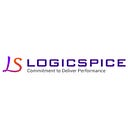How to Choose the Right Recruitment Management System?
2 min readMay 19, 2023
Choosing the right recruitment management system (RMS) is crucial for optimizing your recruitment process and effectively managing talent acquisition. Here are some key factors to consider when selecting an RMS:
- Understand Your Needs: Before evaluating different RMS options, clearly define your organization’s specific recruitment and goals regarding recruitment. Consider factors such as the size of your company, the volume of hiring, the types of positions you typically recruit for, collaboration requirements, and any unique workflows or compliance regulations you need to adhere to. Understanding your needs will help you prioritize features and functionalities in an RMS.
- Scalability and Flexibility: Look for Recruitment Management Software that can scale and adapt to your organization’s growth and changing requirements. Consider whether the system can handle increasing candidate volumes, multiple job openings, and the integration of additional recruitment channels. An RMS with customizable features and workflow configurations can better align with your unique recruitment processes.
- User-Friendliness: A user-friendly interface is crucial for the successful adoption and efficient usage of RMS. Ensure that the system has an intuitive and easy-to-navigate interface that minimizes the learning curve for your recruitment team. Request a demo or trial period to assess the system’s user experience and gather feedback from potential users.
- Integration Capabilities: Assess the RMS’s integration capabilities with other essential tools and systems, such as your existing applicant tracking system (ATS), background check providers, job boards, and career portals. Seamless integration reduces manual data entry, streamlines workflows, and enhances data accuracy.
- Candidate Experience: A positive candidate experience is vital for attracting and retaining top talent. Look for an RMS that offers features like mobile-optimized application forms, personalized communication, and easy document uploads. A user-friendly candidate portal that allows candidates to track their application status and engage with your organization can improve the overall recruitment experience.
- Reporting and Analytics: Analytics and reporting capabilities in an RMS provide valuable insights into your recruitment performance. Look for features that allow you to track and measure key recruitment metrics, such as time-to-hire, cost-per-hire, source effectiveness, and diversity metrics. Customizable reporting options and visualization tools can help you make data-driven decisions and continuously improve your recruitment strategies.
- Security and Compliance: Recruitment involves handling sensitive candidate data, so security and compliance are paramount. Ensure that the RMS adheres to industry-standard data security measures, such as encryption, access controls, and regular data backups.
By carefully considering these factors, you can make an informed decision when choosing the right recruitment management system that aligns with your organization’s needs and helps optimize your talent acquisition efforts.
